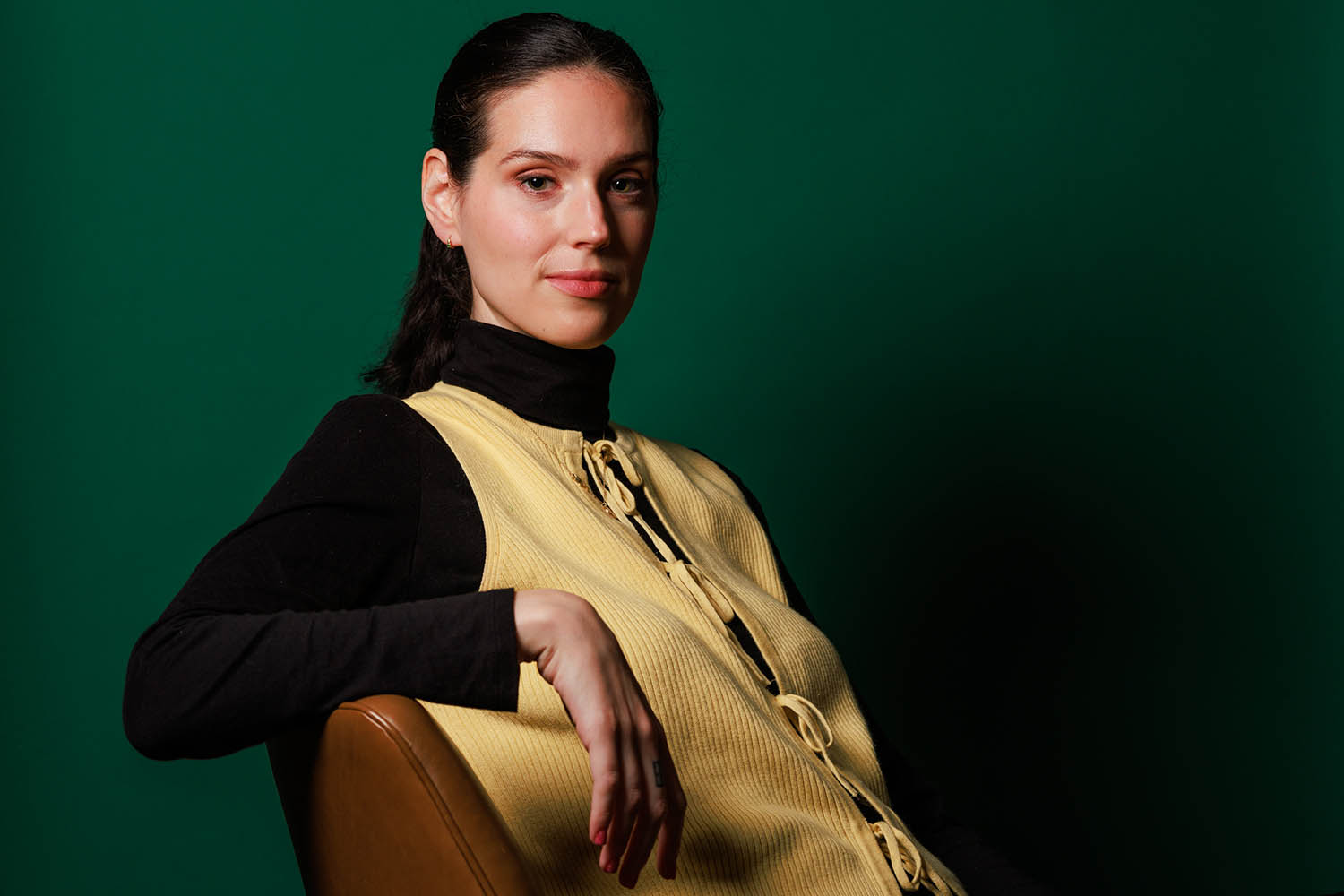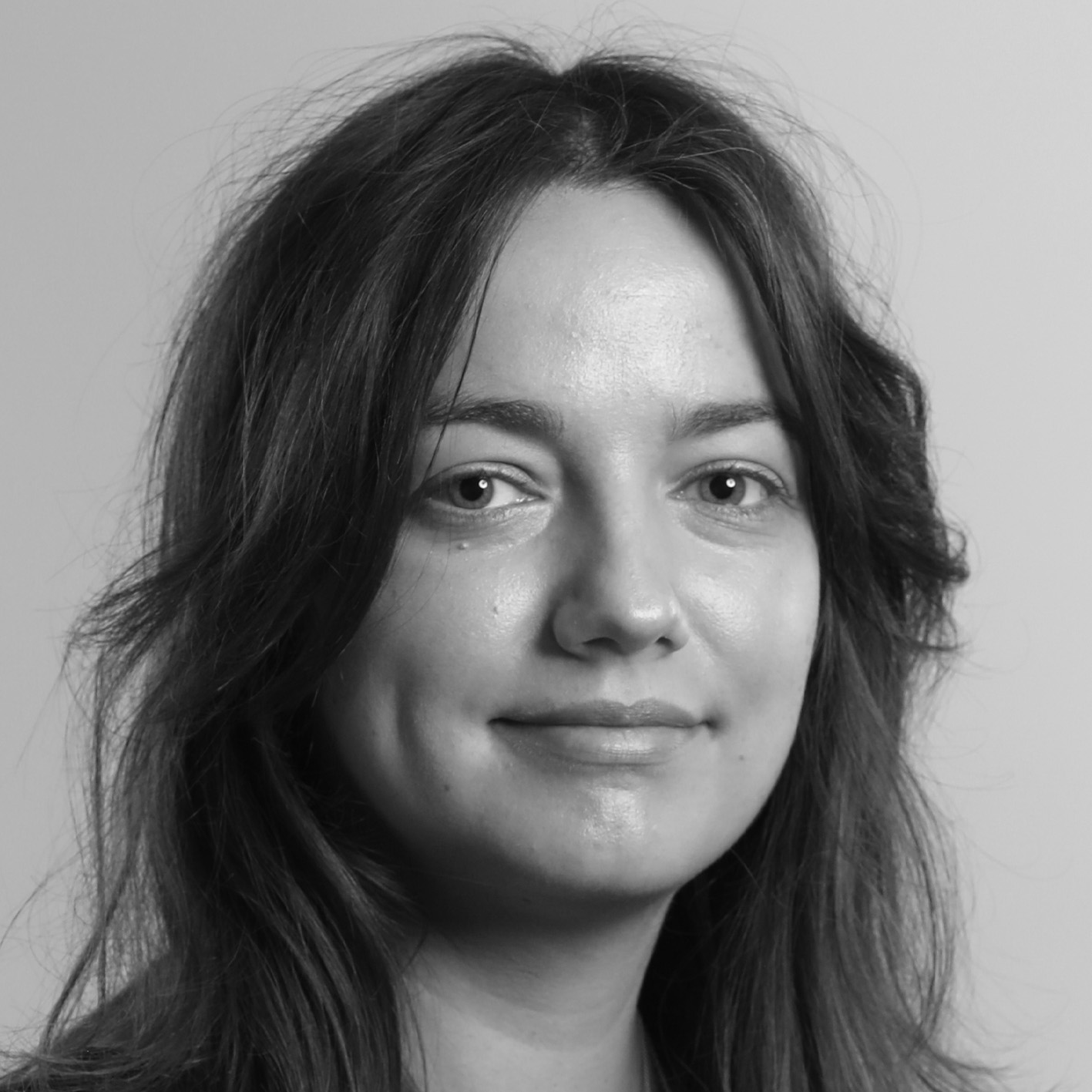Eva Victor, 31, was born in Paris and raised in San Francisco. In their 20s, they wrote for the satirical website Reductress, became known for their viral comedy videos on Twitter, and starred in the Showtime series Billions. Victor (who uses both “she” and “they” pronouns) is the writer, director and lead actor of Sorry, Baby. The film won the screenwriting award at this year’s Sundance festival and follows Agnes, a literature professor living alone in a rural cottage. Helped by a friend, Agnes attempts to deal with the trauma of being sexually assaulted by a trusted professor when she was a graduate student – an event referred to as “the bad thing”.
You started your career making comedy videos. Have those helped to inform your film-making?
I learned to live with humiliation. There’s a ton of shame around putting something out that no one’s asking for: it’s totally embarrassing. I can dismiss my videos all I want, but there was someone in there trying to say something. I’m grateful for that person who was willing to humiliate themselves. On a more technical level, I got used to watching myself and knowing really quickly after I did a clip if I wanted to do it again. That was good training for being on set and having to give myself notes. And Barry [Jenkins, the director of Moonlight, who produced Sorry, Baby] reached out to me because he had seen my videos.
You worked at the satirical website Reductress when #MeToo was making headlines. What was it like making comedy out of that?
It was a hard job, but the most valuable thing I learned was watching other people who worked there navigating it. That was so helpful for Sorry, Baby because I was asked many times: “Why do you think it’s OK to use humour in this film?” And I was like: “Because people are acting so crazily!” This world is so absurd. The way people act is so funny and devastating. Whenever we were stuck in the edit, we’d ask: “What if we made this really funny?”
It’s been nearly a decade since #MeToo. Did the lack of emotional nuance in the media’s reporting motivate you to make Sorry, Baby?
I was looking for films to hold me at a [difficult] time, and I was craving something that didn’t shock my body. [Film-makers often] show something shocking to convey how serious it can be. It wasn’t something I was able to sit through. I was looking for a film that wouldn’t trigger me.
Tell me about the writing of the film.
I wanted to write about trying to heal, and a life-saving friendship. But it took a while to figure out structurally how to put healing and friendship at the centre, and how to de-centre violence. I didn’t want to show the violence, because I’d seen it enough [in other films]. And the language around talking about the trauma was deliberate. We use the term “the bad thing”.
The word ‘rape’ is only used once in the film. When it appears, it feels jarring.
It feels like a slap in the face. These two people have created a language that allows them to talk about something horrible in a way that makes them feel safe. The words we have for it are quite clinical and scary, which can be helpful sometimes. But they needed something softer, that felt more like a hug.
Did you always intend to act in the film? Were there any other writer-director-actors you looked to as inspirations?
I always wanted to act in it. I just declared that at the beginning and then waited for someone to push back and they didn’t, so I was like: “OK, I’m gonna do that.” Barry was the person I could talk to about how to make this film, which was insanely helpful. Charlotte Wells, who made Aftersun, gave me very helpful notes. Jane Schoenbrun I shadowed for a whole summer on their film I Saw the TV Glow, and that changed my life.
The film opens with a long, wide shot of Agnes’s cottage. That mattered a lot to me. My editor [Alex O’Flinn] says the opening shot of your film is your film in one shot. The shot is a lonely cottage in a forest: it’s cold and disconnected from the world, and all that can pierce that bubble is these warm headlights. There were moments in the edit when we were getting notes that the opening shot feels like a horror movie. I was like: that’s OK – there are moments in the film that are scary! And we have a pivotal moment in the film where we stay in a wide shot for a very long time.
Regarding the filming of the ‘bad thing’, the camera lingers on an external shot of Agnes’s professor’s house. We later learn she was assaulted inside. Was keeping the incident off screen something you pushed for?
People understood. It never was a question. A big reason I wanted to make the film was to not go inside the house. I wanted to protect the audience, and for the film to believe Agnes at her word. The idea of seeing what happens to Agnes ahead of her knowing what’s happening to her – that felt cruel. That’s not the ethos of the film; we are with Agnes through difficult times, and we learn as she learns.
There’s a classroom scene where Agnes, now a professor herself, and a student debate Vladimir Nabokov’sLolita. What did you want to say about that book?
I couldn’t make this film without reading Lolita first. If you’re going to be part of a conversation about abuse, you have to understand what’s come before. I was struck and upset by how much I loved it. I couldn’t put it down. I thought the writing was beautiful, and it was so upsetting at the same time. There’s a line from the novel that a student reads in the film – this moment where Humbert has a jolt of awakening, where he maybe sees Lolita’s interiority for the first time. He’s like: “That’s a whole person! Wait, never mind.” He takes it back. Agnes – teaching a book like that – would be thinking about interiority: what does it mean that this person didn’t see me as a whole person? It always felt like a book that was in conversation with the film because it holds many things in it.
Sorry, Baby is in cinemas now
Newsletters
Choose the newsletters you want to receive
View more
For information about how The Observer protects your data, read our Privacy Policy
Photograph by Getty Images

